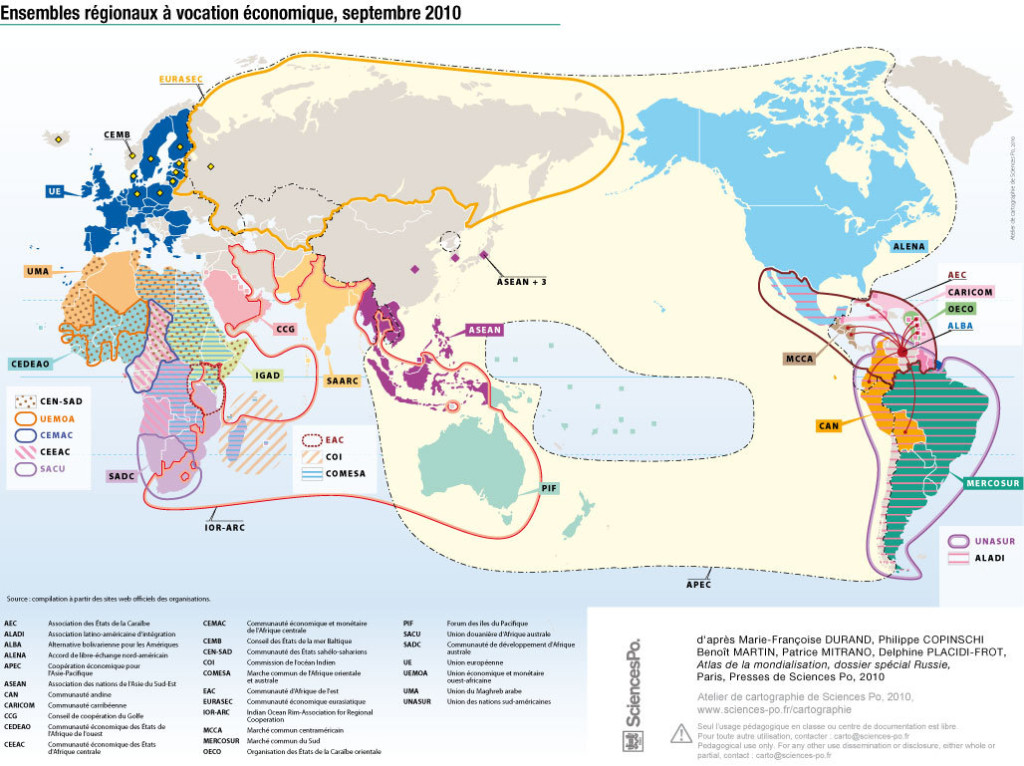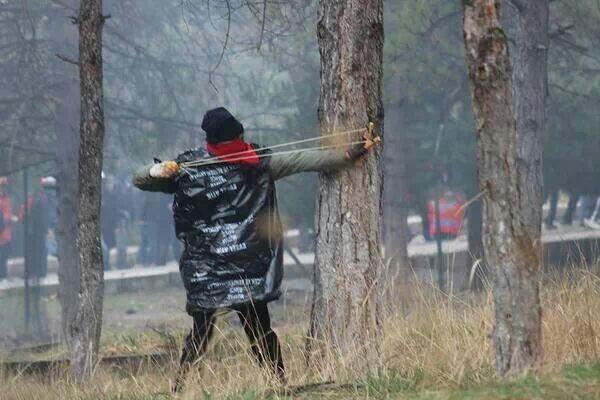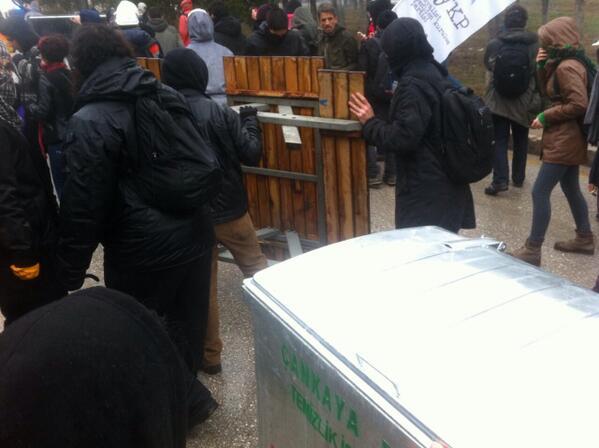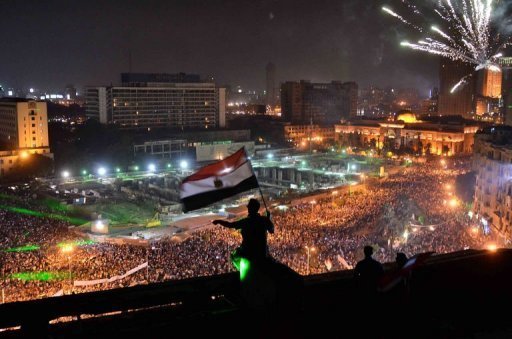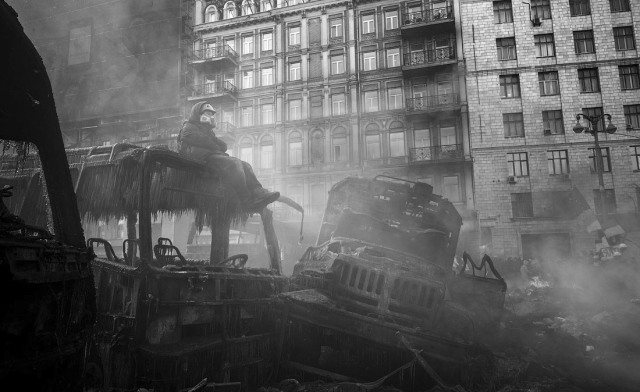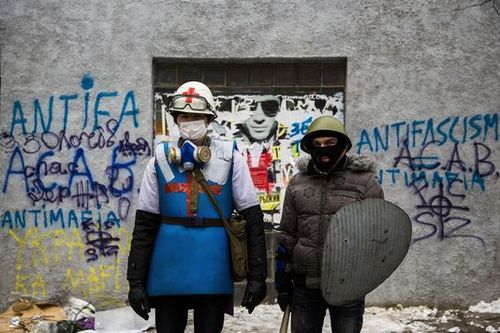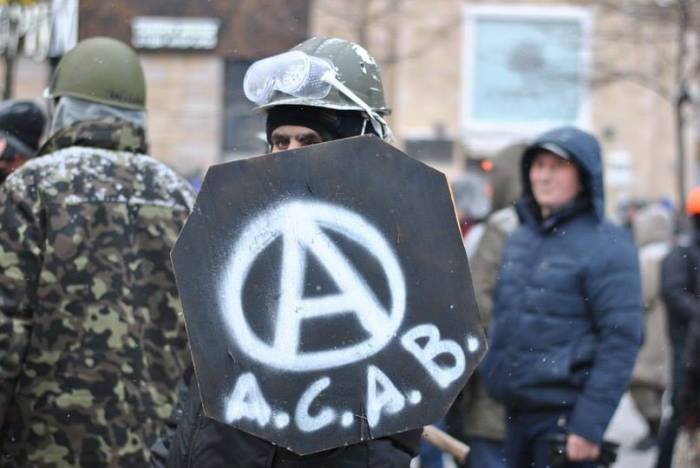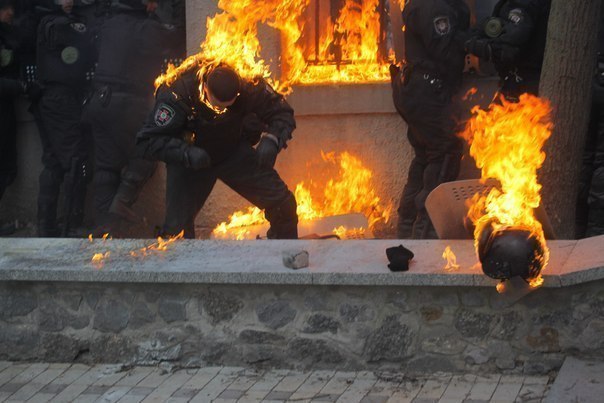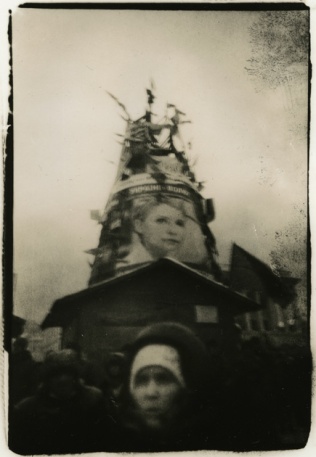Απόσπασμα από το κείμενο Η μεταβατική περίοδος της κρίσης: Η εποχή των ταραχών (Μάιος 2011)
[…] Στην πράξη δεν τίθεται ζήτημα επιστροφής της καπιταλιστικής οργάνωσης στο μοντέλο που είχε ως κέντρο του το έθνος κράτος, καθώς αυτό θα συνεπαγόταν μια διάρθρωση της παραγωγής που ανήκει οριστικά στο παρελθόν. Αν η σύγχρονη παγκοσμιοποίηση φτάσει πραγματικά σε αδιέξοδο, αυτή τη φορά θα είναι αδύνατο η ιστορία να ακολουθήσει την ίδια πορεία που διέγραψε μετά το αδιέξοδο που δημιούργησε η επιτυχία των πρώτων ιμπεριαλιστικών πολέμων, το οποίο οδήγησε στον πρώτο παγκόσμιο πόλεμο. Σήμερα, το κεφάλαιο θα αναγκαστεί να δώσει μια πρώτη απάντηση στην κρίση της παγκοσμιοποίησης με μια αναδίπλωση επίπονη και συγκρουσιακή, την περιφερειοποίηση της συσσώρευσης. Μια απάντηση όμως που δεν φαίνεται προς το παρόν να είναι ικανή να οδηγήσει σε νέο κύκλο συσσώρευσης, μια απάντηση που βρίσκεται μέσα στα ιστορικά όρια της μεταβατικής περιόδου που ξεκίνησε με την κρίση του 2008.
Ο ιμπεριαλισμός της εποχής μας δεν μπορεί να έχει μια μορφή παρόμοια με αυτή που είχε τον 19ο αιώνα, καθώς η συγκεντροποίηση του κεφαλαίου, που έχει δημιουργήσει η ιστορική διαδικασία της συσσώρευσης, δεν επιτρέπει κάτι τέτοιο. Οι περιφέρειες που προορίζονται για περιχαρακώσεις και εχθρικές μεταξύ τους σχέσεις κατάγονται από την ιστορική εξέλιξη των προηγούμενων κύκλων συσσώρευσης του κεφαλαίου και η πιο πρόσφατη (αλλά και πιο ευάλωτη από τις άλλες) είναι η περιφέρεια της Ανατολικής Ασίας(*),το δημιούργημα του νεοφιλελευθερισμού.
Οι περιοχές, κυρίως της τρίτης ζώνης, που δεν ανήκουν σε κάποια από τις περιφέρειες συσσώρευσης αλλά και κάποιες από τις περιοχές της δεύτερης ζώνης που δυσκολεύονται να παραμείνουν ενσωματωμένες στο μοντέλο που επιβάλλεται σήμερα από το χρηματοπιστωτικό κεφάλαιο, αποτελούν ήδη, ή πρόκειται να αποτελέσουν, τα πρώτα πεδία έκφρασης της σύγκρουσης και σε ταξικό και σε ενδοκαπιταλιστικό επίπεδο. Οι περιοχές αυτές προορίζονται για καταλήστευση παραγωγικών πηγών και για κατασταλτική διαχείριση της αναπαραγωγής του προλεταριάτου (**). Αυτό δε σημαίνει πως οι αστικές τάξεις των κρατών αυτών «αντιστέκονται» στην επέλαση αυτή. Αντίθετα, οι πιο δυνατές φράξιές τους αντιμετωπίζουν αυτήν την κρίση ως ευκαιρία να πλασαριστούν σε καλύτερη θέση και να κατασπαράξουν τις πιο αδύναμες φράξιες. Οι πιο αδύναμες φράξιες του κεφαλαίου και τα μικροαστικά κομμάτια του βρίσκονται συμπιεσμένες, όπως πάντα συμβαίνει σε περιόδους κρίσης, και κατά κύριο λόγο στρέφονται προς τις εθνικιστικές πολιτικές που αναπτύσσονται ώστε να προστατευθούν. Οι κοινωνικές αντιφάσεις σε αυτές τις περιοχές εκρήγνυνται καθώς γίνεται ολοένα και περισσότερο σαφές στο προλεταριάτο που ζει εκεί (ή εδώ) πως η συνέχεια του καπιταλισμού σε μεγάλο βαθμό δεν τους περιλαμβάνει ως αξιοποιήσιμη εργατική δύναμη.
Από την άλλη πλευρά, η αντικειμενική τάση περιφερειοποίησης της συσσώρευσης δεν πρέπει να θεωρείται καθόλου βέβαιο ότι θα υλοποιηθεί τελικά. Ήδη στην Ευρωζώνη, δημιουργούνται σοβαρές τριβές ανάμεσα σε σημαντικούς συντελεστές της για το μεταναστευτικό ζήτημα, πέρα από τις σφοδρότατες συγκρούσεις για τον τρόπο διαχείρισης της δημοσιονομικής κρίσης. Στην ευρύτερη περιοχή της Μέσης Ανατολής και του Περσικού Κόλπου εμφανίζονται δυνάμεις που προσπαθούν να αυτονομηθούν όσο είναι δυνατό από την επιρροή των περιφερειών συσσώρευσης όπως το Ιράν, η Τουρκία, ακόμη και η ομάδα κρατών που συγκροτεί το «συμβούλιο συνεργασίας του Κόλπου». Η κρίση αναπαραγωγής του προλεταριάτου από τη μία πλευρά ωθεί προς την περιφερειοποίηση και από την άλλη αποτελεί πλήρως διαλυτική τάση.
(*) Σίγουρα τα κέντρα συσσώρευσης των ΗΠΑ και της ΕΕ επαγρυπνούν ώστε να εκμεταλλευθούν κάθε δυνατότητα που θα τους δινόταν να διαλύσουν την Κίνα και να μοιράσουν τη λεία. Γνωρίζουν όμως πολύ καλά ότι η προσπάθεια για κάτι τέτοιο θα γινόταν συμφέρουσα μόνο μέσω της αποσταθεροποίησης του Κινέζικου κράτους από την ταξική πάλη στο εσωτερικό του. Έτσι όσο το εύχονται άλλο τόσο απεύχονται αυτό το σενάριο.
(**) Στην Αίγυπτο, για παράδειγμα, αυτή η διαδικασία είχε ξεκινήσει να εντατικοποιείται ήδη από το 2004. Ο Gamal Mubarak τότε πήρε προσωπικά, σε μαφιόζικο στυλ, την εξουσία και μοίρασε διαχειριστικούς ρόλους σε διάφορους ραντιέρηδες και υπαλλήλους της διεθνούς του χρηματοπιστωτικού κεφαλαίου. Ακολούθησαν με ραγδαίους ρυθμούς ιδιωτικοποιήσεις, μείωση της φορολογίας στα κέρδη του κεφαλαίου από 40 σε 20%, και απροθυμία συλλογής έστω αυτών των φόρων από το κράτος, και προσπάθεια μεγάλης αύξησης της στεγαστικής φορολογίας των χαμηλών εισοδημάτων, κάτι που απονομιμοποίησε ακόμη περισσότερο το καθεστώς (στοιχεία από το άρθρο Egypt Revolt, New Left Review no. 68).
